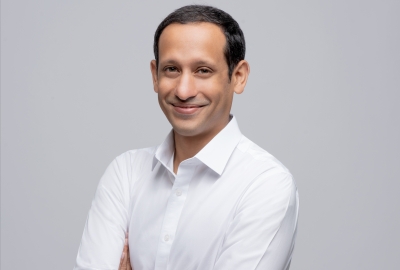
On September 16th, 2022, The NYU Steinhardt International Education Program welcomed the Indonesian Minister of Education, Nadiem Anwar Makarim. Minister Makarim has implemented some of the most innovative and unusual education reforms globally. He spoke about his successes, innovations, and challenges in transforming the education system in Indonesia and engaged in a lively Q and A with the NYU audience.
Watch the Lecture Recording
Welcome Address:
Elise Cappella, Vice Dean for Research and Professor of Applied Psychology
Dana Burde, Professor and Program Director of International Education, NYU
Lecturer:
Minister Nadiem Anwar Makarim
Nadiem Anwar Makarim, B.A., M.B.A. is the current Minister of Education, Culture, Research, and Technology of the Republic of Indonesia. He founded Gojek in 2010, a transportation network and logistic startup company that became Indonesia's first startup valued over US$10 billion. He was appointed as Minister of Education and Culture by President Joko Widodo in his second terms cabinet and subsequently resigned from his post at Gojek.
Key Points From the Lecture
Minister Makarim discussed the learning crisis in Indonesia: 70% of 15 year old students showed below minimum competency levels in literacy and numeracy and higher education attendance was low. A vision for EMANCIPATED LEARNING is intended to create competent, thriving lifelong learners with strong character traits - based on Pancasila - the Indonesian national ideology. These efforts intended to change the idea that school is a chore, that students are passive participants, and instead turn school into a joyful experience, make students empowered with agency, and teachers trained based on practice.
To reach these goals, the Minister and his team worked toward transformation through emancipated learning. They introduced a commitment to support foundational learning and teaching through a number of reforms, including:
- Open up tertiary education
- Use technology to scale up and accelerate process
- Measure learning better through diagnostic national assessment
- Introduce more flexible curriculum framework
- Replace subject-based university entrance exams with aptitude-based tests
- “Master Teachers” next generation of school leaders
- Redesign the teacher education
The audience engaged in a lively Q and A with the Minister and were encouraged to follow up in the future.
